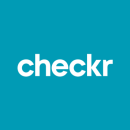Which came first: the employee who became disengaged with a company, or a company that became disengaging for the employee?
As only one-third of U.S. employees are engaged at work, according to a Gallup survey, the answer is likely the latter. Employee disengagement has become a systemic issue in the workplace, one that is responsible for underlying unhappiness and lack of motivation for employees.
And it can reap consequences for business, too: According to a report by the Society of Human Resources and Management, increased employee engagement for construction company Caterpillar resulted in “$8.8 million annual savings from decreased attrition, absenteeism and overtime in a European plant.”
So how can employers make the workplace more engaging for their employees? Consider what makes a personal relationship functional: you feel supported, important and respected; communication is active, personable and transparent; and your ideas can be exchanged and considered.
For the following four Colorado companies, they’ve taken a similar approach to engaging their employees, though exactly how they do it differs across the board. From carving out time for face-to-face social events to giving team members ownership in their work, employees at SumUp, Checkr, Toastmasters and Housecall Pro have all implemented strategies to increase their team’s engagement.
The pandemic has made it difficult to connect with fellow coworkers, but Andrew Helms, the U.S. managing director at mobile payments company SumUp, said that carving out time for team events has proved beneficial in keeping employees engaged.
What’s a surprising or unique strategy you leverage to improve or bolster team engagement?
There are two things that got me excited about working at SumUp.
First was the commitment to taking risks and going after big bets, and getting passionate about innovation. But second was the team: working with and around humble, hard-working people who enjoy what they’re doing not for their own glory, but for the sake of building a community. That’s what gets you through.
That’s why we invest so much time into building camaraderie within the team. One of our core values at SumUp is “We care” — and this applies not just to our customers, but also to each other. The pandemic has made it doubly hard to spend time together as a team, but whether it’s our quarterly town hall or remote team breakfasts, carving out time for (safe, socially distanced) team events has really helped keep our team connected and engaged. Just because we have a business to run doesn’t mean we have to be robotic or rigid with our time. At the end of the day, people enjoy being together, which is why we’ve taken advantage of every opportunity to maximize human connections.
At the end of the day, people are the most successful when they feel plugged in and like they’re up to date on what’s going on.”
What makes this strategy so successful? What results have you seen?
At the end of the day, people are the most successful when they feel plugged in and like they’re up to date on what’s going on. That’s why we prioritize events like town halls because they open up communication so we’re on the same page around our priorities and where we’re going. Even with informal social events, being open and transparent helps build trust and community, which then translates to a more productive working environment. There’s always more you can do, but across the board, we’ve received positive feedback and seen the ripple effects across the entire board.
From tiny startup to big corporation, team engagement is vital. Checkr Chief Business Officer Marc Diouane said that the pandemic tested his team’s engagement at first, but they bounced back with team-building activities to keep morale high. “In the end, it’s all about building a culture of working together,” Diouane said.
What’s a surprising or unique strategy you leverage to improve or bolster team engagement?
Team engagement is key to success, from startups to established corporations. Then you add the pandemic and it is even more challenging to make sure everyone is working toward the same goal. During COVID-19, we leaned heavily on Zoom calls, and very early we realized we needed a heavy dose of humor and humility to build and boost our team. Now we have virtual happy hours with trivia and open-ended questions, shared experiences where we all learn a new skill together like sushi making, and even hilarious celebration dance videos through JibJab. We are all incredibly competitive but the ability to show we are on the same team, working toward the same goal, allows employees to feel part of a greater effort. It also breaks down barriers and silos in the company and leads to greater success.
Keeping a sense of humor and humility creates a successful culture.”
What makes this strategy so successful? What results have you seen?
Our revenue team is making great strides at focusing on our strategy, our ideal customer, and new products that would delight partners and prospects. We believe as a team we are better than individuals. Keeping a sense of humor and humility creates a successful culture and allows both new and experienced team members to ask for help when they run into difficulties. I can see a difference in our quarterly business revenues — when we are talking about an issue, our team is more willing to step in and brainstorm or help with the solution. In the end, it’s all about building a culture of working together.
Employees want to be a part of a company’s success. Anette Dunning, translations manager at educational nonprofit Toastmasters, said that in order for that to occur, she’s responsible for creating opportunities for that to happen in order for employees to stay engaged.
What’s a surprising or unique strategy you leverage to improve or bolster team engagement?
I believe that in order to be excited and motivated about work, all team members have to feel a sense of ownership and understand the end goal. I have an educated, intelligent and motivated team. It is my responsibility to support and nurture their motivation by creating opportunities for success. I do not believe in micromanaging my team. I lead as well as follow and learn from them. I empower my team to take responsibility for projects with minimal supervision and trust them to use their best judgment. In return, they trust me to bring positive as well as constructive feedback.
It is my responsibility to support and nurture their motivation by creating opportunities for success.”
What makes this strategy so successful? What results have you seen?
This strategy is successful because I continue to see excitement and motivation within my team. There is a healthy sense of appreciation and accomplishment. Team members Catherine McGuinness and Sahar Nassar are very productive and are always emotionally present and willing to take on new responsibilities. They are not afraid to tackle new projects; on the contrary, they welcome the opportunity to learn and grow!
Marshall Robinson, the VP of sales at home services platform Housecall Pro, dealt with a specific instance of employee engagement, or lack thereof, recently. After seeing some sales development representatives (SDRs) leave after training, the company revamped its training strategy to keep employees engaged.
What’s a surprising or unique strategy you leverage to improve or bolster team engagement?
When you hit the phones matters.
Every week we onboard a new class of outbound SDRs. As we all know, outbound cold-calling is about as hard as inside sales gets and inevitably is not for everyone. Considering that, we saw an alarming trend develop — we were losing 28 percent of our new recruits between their first and second weeks. The reasons varied but the underlying theme was clear: They had come to the conclusion that the job wasn’t right for them.
We had built a solid onboarding and training program that we knew got them pumped up on our mission, product and earnings potential. We brought in top performers to hype them up on what was possible, watched customer testimonials and dazzled them with demonstrations of the best-in-class product. By Friday of their first week, they were itching to hit the phones. But something changed after Friday and we would lose 28 percent of our class by Monday morning.
Nicole Felesina, the senior manager in charge of the program, suggested that we carry the momentum and excitement of week one into week two by pushing their first day on the phones to the following Monday.
We harness the power of their excitement to carry them to Monday so that when they do inevitably hit a wall, they don’t have 48 hours to ruminate in a vacuum.”
What makes this strategy so successful? What results have you seen?
Nicole was tapping into the psyche of the SDRs before and after hitting the phones. Before, they were high on possibility; after, they were sober to the reality of the cold call. Her hypothesis was that by entering the weekend on a low note, the SDRs had 48 hours to second guess themselves and, when it came down to it, decided against taking the plunge again on Monday.
Her hypothesis was spot on. Immediately following the changes to the cohort’s inaugural dialing day, we saw week one SDR retention go from 72 percent to 85 percent and it has held at that level or higher ever since. Her genius is that the weekend is no longer a black hole of despair. We harness the power of their excitement to carry them to Monday so that when they do inevitably hit a wall, they don’t have 48 hours to ruminate in a vacuum but instead come in the very next day to positive reinforcement and reassurance from us.
Our experience was a clear manifestation of the sales maxim that mindset is everything.












